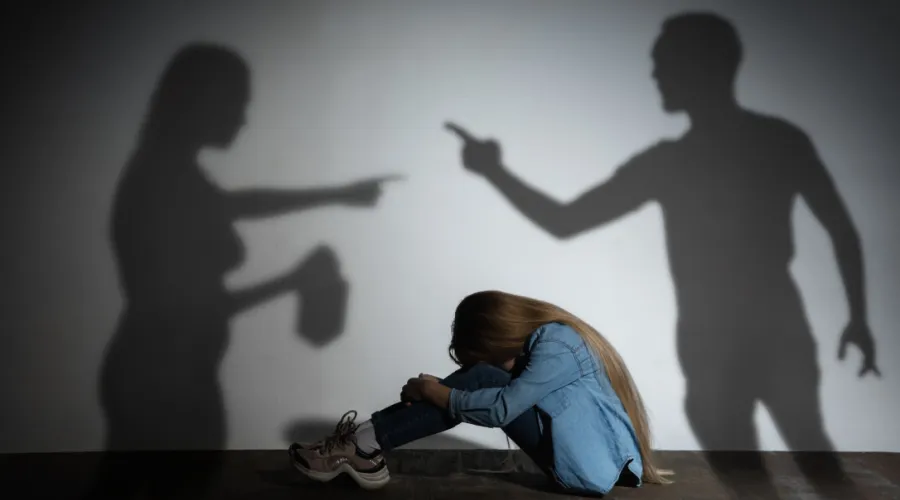How Drug Addiction Affects Romantic Partners

Drug addiction is a powerful force that can destroy even the strongest relationships. If you have a partner struggling with substance abuse, you may be wondering: how often do couples break up because of drug addiction?
When one or both partners struggle with substance abuse, the effects spread to every area of their lives, causing emotional turmoil, trust issues, financial instability, and even legal problems. Understanding addiction as an illness is key, as it’s a mental health issue that affects both the individual and their relationships.
But how often do couples break up because of drug addiction? While the stats vary, studies and anecdotal evidence suggest addiction is a top reason for relationship breakdowns.
Let’s dive in with our blog from Couples Rehab Guide and look at how drug addiction leads to breakups and if recovery can lead to reconciliation.
The Numbers: How Common Are Breakups Due to Drug Addiction?
Quantifying how often drug addiction leads to breakups is tricky due to underreporting and the complexity of relationships. Partners may not be aware of the level of addiction at first, which can make things worse. But research gives us some answers. According to studies, substance abuse is one of the top reasons for divorce. The National Institute on Drug Abuse (NIDA) says around 7.3% of divorces in the US are directly due to substance abuse.
A study in the Journal of Studies on Alcohol and Drugs found couples where one partner has a substance use disorder (SUD) are more likely to experience relationship instability, separation, or divorce. A survey by the American Association for Marriage and Family Therapy (AAMFT) revealed substance abuse is involved in 40-60% of all divorce cases, either as a primary or contributing factor. In long-term relationships where drug addiction is present, breakups are even more common, with many couples struggling to stay together under the weight of addiction-related challenges.
How Drug Addiction Leads to Breakups

Drug addiction affects romantic relationships in many ways, often driving couples apart. Here are the main reasons why addiction is a big contributor to breakups:
The danger associated with a partner’s addiction can show up as anxiety and fear for the spouse.
1. Loss of Trust
Trust is the foundation of any healthy relationship and addiction crushes that trust. Addicted individuals will lie about their drug use, steal to fund their habit, or engage in secretive behavior. When a partner consistently lies or manipulates the other, it creates an atmosphere of suspicion and emotional distance. The partner must decide how to respond to the loss of trust and whether to stay in the relationship.
2. Emotional and Physical Neglect
Addiction can consume a person’s life making them emotionally and physically unavailable to their partner. This neglect can lead to feelings of loneliness, resentment, and frustration, causing the non-addicted partner to re-evaluate the relationship. It’s hard for the non-addicted partner to deal with the neglect and emotional chaos.
3. Financial Strains
Substance abuse is expensive and financial strain is one of the top reasons for relationship issues. When a big chunk of the income goes towards funding a drug habit, couples may struggle to pay bills, maintain a home, or support children, leading to frequent arguments and eventually separation.
4. Increased Conflict and Domestic Violence
Substance abuse is often linked to increased conflict, aggression, and in some cases, domestic violence. A study by the National Domestic Violence Hotline found substance abuse was a factor in nearly 60% of domestic violence cases. Substance use disorders can increase conflict and aggression significantly, even in non-violent relationships.
5. Legal and Social Consequences
Addiction can lead to negative consequences, including legal problems like DUIs, arrests, job loss, and social alienation. When one partner’s addiction brings legal trouble into the household, it can be overwhelming for the other partner, often leading to separation or divorce.
6. Infidelity and Relationship Infidelity
Addictions often lead to risky behaviors including infidelity, which can significantly impact relationship stability. Some individuals have relationships outside of their primary partnership to support their addiction or due to impaired judgment, further eroding trust and stability.

3 (Very) Common Signs of Addiction in a Partner
Recognizing the signs of addiction in a partner can be tough but it’s essential to address the issue before it’s too late. Here are some common signs of addiction to look out for:
1. Behavioral Changes
Addiction often shows up through changes in behavior. You may notice increased secrecy and dishonesty about their activities and whereabouts. Mood swings like irritability, anxiety, or depression can become more frequent. This can be due to the substance abuse itself, or an underlying mental illness.
Your partner may lose interest in activities they once enjoyed and engage in increased risk-taking behaviors like reckless driving or unsafe sex. Withdrawal from social interactions and relationships is also a common sign as active addiction takes priority over other aspects of life.
2. Physical Changes
Physical signs of addiction are quite visible. These may include changes in appearance like significant weight loss or gain, poor hygiene, or disheveled clothing. You may notice bloodshot eyes, dilated pupils, or other signs of substance use.
Slurred speech, stumbling, or other signs of intoxication can also be red flags. Increased tolerance to substances, needing more to get the same effect, and withdrawal symptoms like tremors, sweating, or nausea when they stop using are big indicators.
3. Financial Changes
Financial instability is another hallmark of addiction. You may notice unexplained expenses missing money, increased debt, or financial problems. Your partner may start selling or pawning personal belongings to fund their addiction. Neglecting financial responsibilities like bills or rent and using money meant for other purposes like groceries or rent to fund their addiction are also common signs.
Codependency and Addiction are Like Peanut Butter and Jelly
Codependency is common in relationships where one partner struggles with addiction. It’s important to understand the role of codependency in addiction and how it affects the relationship.
1. Enabling Behaviors
Codependency often involves enabling behaviors that perpetuate the addiction cycle. This may include providing financial support or covering up for the addict’s behavior. Making excuses or justifying the addict’s actions, avoiding confrontation or conflict about the addiction, and taking on too much responsibility for the addict’s well-being are also common.
In the process, the codependent partner may neglect their own needs and well-being to focus on the addict’s needs.
Recognizing these enabling behaviors is key as they can make it harder for the addict to seek help. Addressing codependency involves setting healthy boundaries, seeking support, and focusing on one’s own well-being. This can create a more balanced dynamic and encourage the addicted partner to seek substance abuse treatment.
By understanding the signs of addiction and codependency, romantic partners can better navigate the addiction challenges. Whether working towards recovery or separation being informed and proactive can make the journey easier.

Can Relationships Survive Drug Addiction?
Despite the high breakup rates associated with substance abuse, some couples do manage to navigate these challenges and rebuild their relationship. The key factors that contribute to survival are:
1. Commitment to Recovery
If the addicted partner acknowledges the problem and seeks help, the relationship has a better chance of surviving. Couples who attend treatment together and attend therapy, support groups, and commit to sobriety often find their relationship improves over time. However, consistent work is required to stay sober and rebuild trust and connection.
2. Professional Help
Seeking professional guidance through addiction counselors, therapists, or substance abuse treatment programs can provide both partners with the tools to heal individually and as a couple. Holistic couples therapy, in particular, has been shown to be effective in relationships affected by addiction.
3. Clear Boundaries and Expectations
Setting firm boundaries around substance use, behavior, and treatment can help partners navigate recovery more effectively. Whether in a marriage or just dating, non-addicted partners may also need to set boundaries for their emotional well-being.
4. Support Systems
Having a strong support system, family, friends, and addiction recovery groups like Al-Anon can make a big difference in maintaining a relationship through addiction recovery.
When to Walk Away: Recognizing When It’s Time to End the Relationship

While some relationships can survive drug and alcohol abuse, others may reach a point where separation is the healthiest choice. The reality of addiction often involves making difficult decisions about ending the relationship due to the complexity and challenges it brings. Some signs that indicate it may be time to leave are:
- Repeated Relapses with No Effort Toward Recovery
- Physical, Emotional or Verbal Abuse
- Severe Financial Strain That Compromises Safety and Well-being
- Pattern of Lying, Manipulation or Infidelity
- Legal Troubles That Put Both Partners at Risk
In these cases prioritizing personal safety and mental health is key. Ending the relationship doesn’t mean giving up on the addicted partner but may mean protecting oneself from further harm.
Moving Forward: Healing After a Breakup Due to Addiction
Breaking up due to addiction can be brutal for both parties. But don’t get stuck in past resentments around the addiction as it holds you back from moving forward. Healing is possible through self-care, therapy, and support groups.
For the addicted partner getting treatment and staying in recovery can help rebuild a future free from addiction. For the non-addicted partner focusing on personal well-being, setting new goals and self-reflection can lead to healthier relationships in the future.
The Hard but Necessary Call: Get Help Together Now

Drug addiction is one of the biggest obstacles a relationship can face and in many cases leads to breakups. Some couples manage to survive and even strengthen their bond through recovery while others find separation is the best for their well-being.
Understanding the impact of addiction on relationships, recognizing the warning signs, and seeking professional help can make a big difference. Whether you stay together or part ways always prioritize health, safety, and emotional well-being. If you and/or someone you love is struggling with addiction seeking help from professionals or support groups can guide you through this tough journey.
From luxury rehab placement to dual diagnosis facilities, to local treatment centers nationwide, our team can help you both find the help needed for recovery.
The representatives at Couples Rehab Guide can help you and your partner understand the impacts of this vicious cycle.
Reach out to us today, and we will find a treatment facility that can get you and your loved one on the path to lasting recovery.


